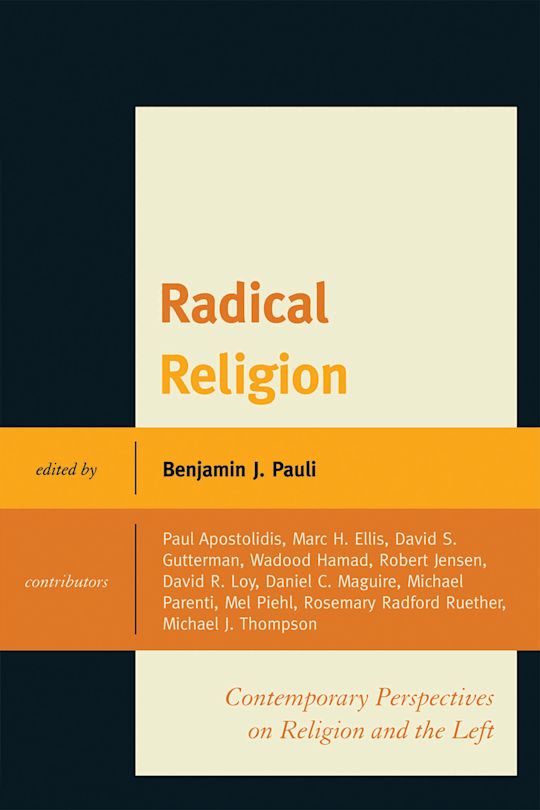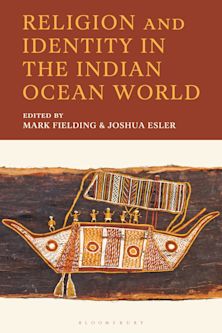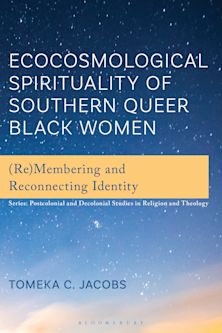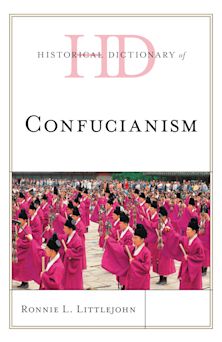- Home
- ACADEMIC
- Religious Studies
- Religious Studies - Other
- Radical Religion
Radical Religion
Contemporary Perspectives on Religion and the Left
Benjamin J. Pauli (Anthology Editor) , Paul Apostolidis (Contributor) , Marc H. Ellis (Contributor) , David Gutterman (Contributor) , Wadood Hamad (Contributor) , Robert Jensen (Contributor) , David Loy (Contributor) , Daniel C. Maguire (Contributor) , Michael Parenti (Contributor) , Mel Piehl (Contributor) , Rosemary Radford Ruether (Contributor) , Michael J. Thompson (Contributor)
Radical Religion
Contemporary Perspectives on Religion and the Left
Benjamin J. Pauli (Anthology Editor) , Paul Apostolidis (Contributor) , Marc H. Ellis (Contributor) , David Gutterman (Contributor) , Wadood Hamad (Contributor) , Robert Jensen (Contributor) , David Loy (Contributor) , Daniel C. Maguire (Contributor) , Michael Parenti (Contributor) , Mel Piehl (Contributor) , Rosemary Radford Ruether (Contributor) , Michael J. Thompson (Contributor)
This product is usually dispatched within 2-4 weeks
- Delivery and returns info
-
Flat rate of $10.00 for shipping anywhere in Australia
You must sign in to add this item to your wishlist. Please sign in or create an account
Description
The political Left has had a turbulent relationship with religion, from outright hostility to attempts to meld religious faith with progressivism. Confronted with contemporary social ills, the progressive Left continues to disagree about the role that religion should play, whether in understanding social challenges and solutions, or stimulating social critique and reform. Radical Religion presents valuable insights, from both religious and secular perspectives, for progressives today as they struggle to formulate a coherent agenda and effective strategies for social change. This book presents arguments from a diverse group of scholars, and offers a snapshot of contemporary, progressive thinking about religion.
Table of Contents
2 Introduction
Part 3 Part 1. Theoretical and Historical Frameworks
Chapter 4 Chapter 1. Religion and Secular Progress in America
Chapter 5 Chapter 2. Religion and the Common Weal
Chapter 6 Chapter 3.After Religion: Progressive Politics and the Ethics of Modernity
Part 7 Part 2. Bridging the Personal and the Political
Chapter 8 Chapter 4. The Nonduality of Personal and Social Transformation: Why Religion and the Left Need Each Other
Chapter 9 Chapter 5. Religious but not Spiritual: Creating a New Communion
Part 10 Part 3. Confronting Religious Conservatism
Chapter 11 Chapter 6. The Politics of God in the Christian Tradition
Chapter 12 Chapter 7. Against the Theocrats
Chapter 13 Chapter 8. 'New' Evangelicals and the Post-Political Horizons of Neoliberalism
Chapter 14 Chapter 9. Prophet or Priest: The Politics of Rev. Jim Wallis
Part 15 Part 4. Ideas in Context
Chapter 16 Chapter 10. A Sociopolitical Critique of Ethno-Religious Chauvinism in Contemporary Arab Societies
Chapter 17 Chapter 11. All These Atheists and Rebels: Reflections on the Explosion of the Jewish Prophetic in Our Time
18 About the Contributors
Product details
| Published | 11 Oct 2010 |
|---|---|
| Format | Paperback |
| Edition | 1st |
| Extent | 228 |
| ISBN | 9780739143230 |
| Imprint | Lexington Books |
| Dimensions | 231 x 155 mm |
| Series | Logos: Perspectives on Modern Society and Culture |
| Publisher | Bloomsbury Publishing |
About the contributors
Reviews
-
In this volume renowned scholars and emerging authorities of wide-ranging perspectives offer fresh insights on the rich relationship between religion and the Left. By turns inspiring and thought-provoking, these essays remind us how vital religious thought and spiritual commitment have been to the progressive tradition-and how indispensable they remain to its renewal.
Joseph A. McCartin, Georgetown University
-
This book is strong evidence that progressives are far from bereft of challenging ideas, critical and self-critical analyses, and compelling visions of a more just and democratic society. It is a critical resource for people of good faith, secular and religious, who fight for social justice. It is a strong antidote to the superficial, mendacious, and ill-tempered public discourse that prevails today. It engages us at a profound nexus of religion and politics that can equip us with a more rooted and confident solidarity to face the difficult struggles ahead.
Jim Sessions, President, Working America Education Fund and Executive Director, Interfaith Worker Justice of East Tennessee



































